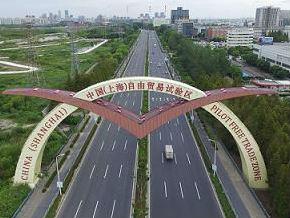BEIJING, Dec. 21 (Xinhua)--Shanghai Municipal Food and Drug Administration released the Medical Equipment Registrant Pilot System in Shanghai Free Trade Zone (Shanghai FTZ) recently.
Shanghai, as the first pilot place in this field, will provide examples and experiences for other cities and regions in medical equipment industries in reforms to delegate power, streamline administration and optimize government services.
Li Fugang, general-manager of Shanghai Upper Bio-Tech Co Ltd, said under the new system the researchers now can also be the registrants of medical equipment companies. There’s no need to set up a manufacturing factory, but just to commission the production to producers of medical devices and equipment.
Upper Bio-Tech has set up an incubator of medical equipment companies in Pudong New Area, and once it attracted 200 start-up companies. However, they were deterred by the high-cost of production as the old system tied registration with production. Talents were lost due to the delay of the production of the research findings.
With the new policies, even when the product is still in incubation process, the registrant can entrust the medical equipment manufacturing companies in Shanghai to produce a sample product, Li added.
Li predicted that Shanghai, as a base of medical industry incubation, will see rapid development of medical equipment research and production. So far, Upper Bio-Tech has already come into contact with 150 registrants.
Xu Lai, deputy director of Shanghai Municipal Food and Drug Administration, said when China’s medical industry has entered the rapid development stage, China is facing the problem of overcapacity in production.
Because of this, many medical equipment production companies can’t get registered or obtain the production qualification, Lai added. The new policies were introduced to grant more opportunities to the companies, to allocate the recourses rationally, and to stimulate innovation in medical equipment research.
The reform will lay a solid foundation for Shanghai’s medical equipment industry, and connect the medical recourses in Shanghai without the restriction of land and environmental recourses, accelerate the product launch time, benefit the locals with quality medical products at a reasonable price, and attract more medical researchers, institutes, and innovation companies.
Along with the reform policies, some new requirements have also introduced. For instance, Original Equipment Manufacturer will be strictly banned; the production companies need to be holders of International Quality Management System Certificate; and third party will be commissioned to evaluate the companies’ operation.
Shanghai will strengthen the supervision on medical equipment’s launch, the manufacturer’s sales and service; monitor defective equipment; and accelerate the recall process. More inspections will be conducted on high-risk medical equipment companies.
(China (Shanghai) Pilot Free Trade Zone, edited by Tong Wei)




 A single purchase
A single purchase









